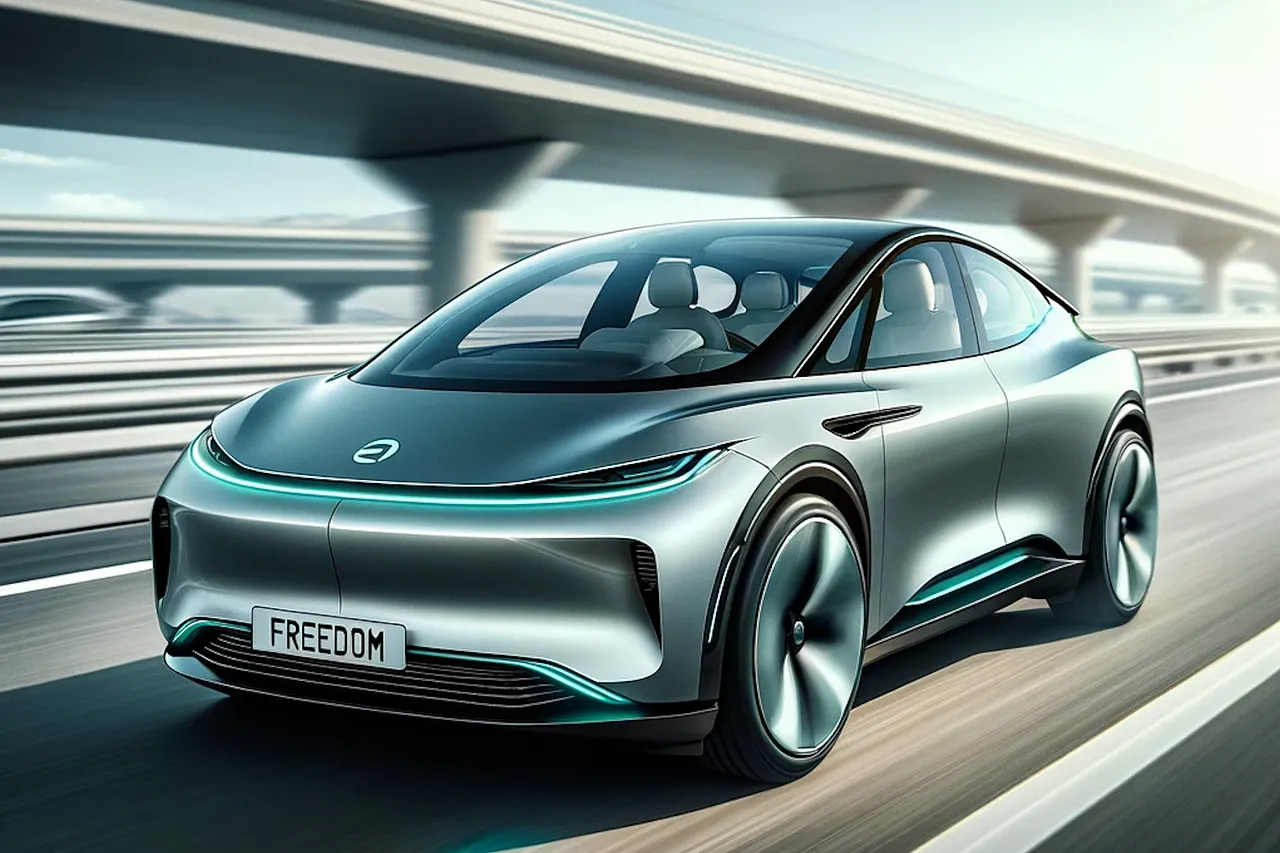Originally published: Feb 22, 2024
Government should remove all preferences for electric vehicles and allow them to compete and grow on a free market.
This will enable EVs to reach their full potential to provide affordable, no-tailpipe-emissions transport without harming consumers or the grid.
Background
EVs have generated excitement because they have some performance advantages and no tailpipe emissions. However, EVs aren't currently cost-effective for most uses and face scalability issues with America's inadequate grid and small-scale production of key EV materials.1
Goals for good EV policy
Good EV policy should unleash whatever potential EVs have to be a cost-effective, scalable alternative to internal combustion engine (ICE) vehicles, but not harm consumers or the grid by imposing EVs before they are truly cost-effective and scalable.
Today's anti-freedom EV policy
EVs get massive subsidies via tax credits (“Inflation Reduction Act”), which coerce drivers into using EVs even when they're not truly cost-effective. And the EPA plans emissions regulations so strict that they would ban most ICE sales by 2032.2
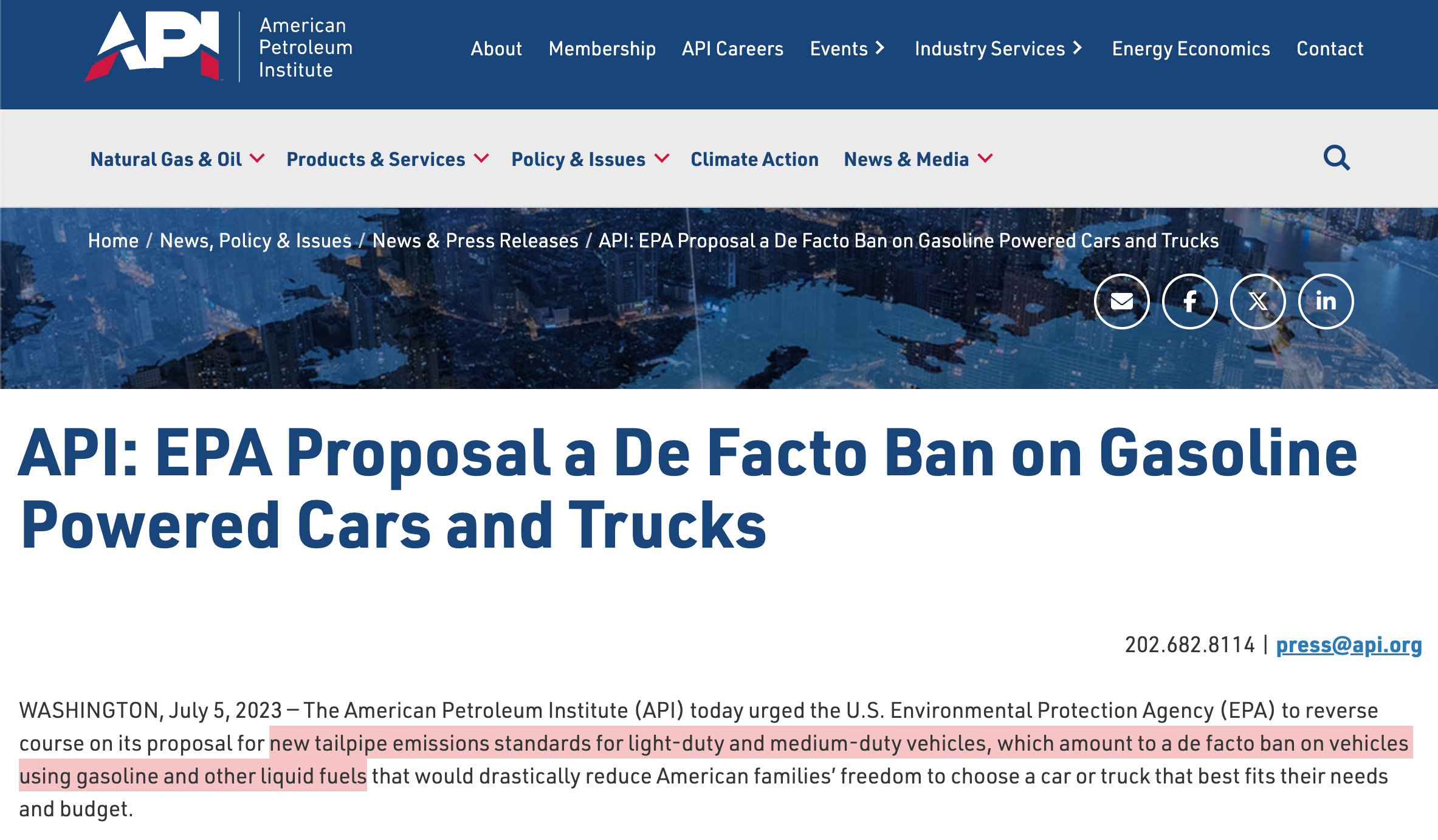
False rationale for EV preferences
Myth: Fossil fuels have created a “climate emergency” that can only be ended if we mass-adopt EVs.
Truth: Fossil fuels have created unprecedented climate safety with no need to rapidly reduce greenhouse gas emissions—which scalability-challenged EVs can't do anyway.3
-
America is not in a “climate emergency”.
Rising CO2 levels are:
-
Not dire: Humans are safer from climate than ever.
-
Not temporary: They will rise for decades.
-
Not in our control: We emit 1/7 of CO2—and falling.4
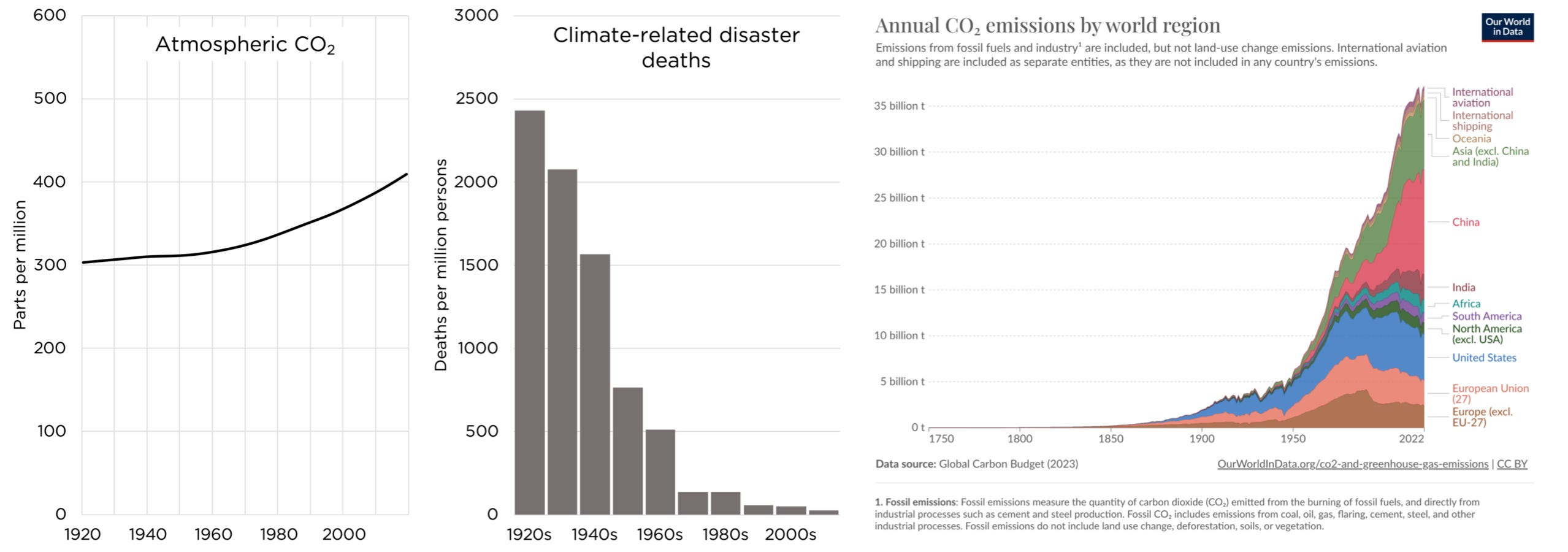
-
-
If we were in a climate emergency, forced EVs wouldn't help much.
With current “green” supply chain regulations pushing production abroad, any remotely cost-effective EV manufacturing can only happen in places with emissions-intensive production, like China.5
-
While EVs have no tailpipe emissions, they leave the factory with higher emissions from their supply chain than ICEs. Whether they can catch up with an ICE vehicle of the same size depends on the electricity mix and battery lifetime. But the emissions are never close to zero.6
Destructive consequences
EV preferences, by forcing us to use far more EVs than we otherwise would, when our grid and domestic supply chains are not ready, harm Americans via 1) an inferior product at cost to taxpayers, and 2) catastrophic electricity shortages.
-
An inferior product
Even with massive EV preferences, only 7.6% of vehicles sold in 2023 were EVs—almost all from luxury brands like Tesla. Most poor and middle class Americans can't afford to deal with EV cost, range, and inconvenience issues—and it's immoral to force them to.7
-
Catastrophic electricity shortages
America is already in an electricity crisis, and planned EPA policies threaten to reduce reliable grid capacity 20% by 2030.
Our government's plan to mass-mandate electricity-hungry EVs would lead to a third-world grid.
The EPA vs. the grid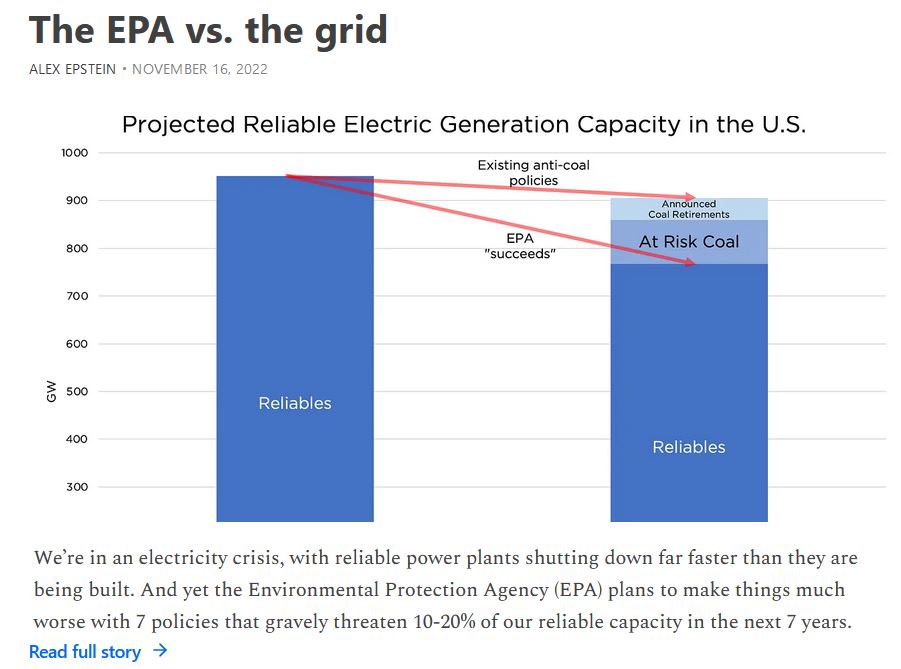
-
CA is already having major problems with EV charging. On Aug 31, 2022, the CA grid operator urged consumers to cut electricity usage during a heatwave, including using less airconditioning(!) and refraining from “charging electric vehicles.”
Imagine what would happen with over 50% EVs.8
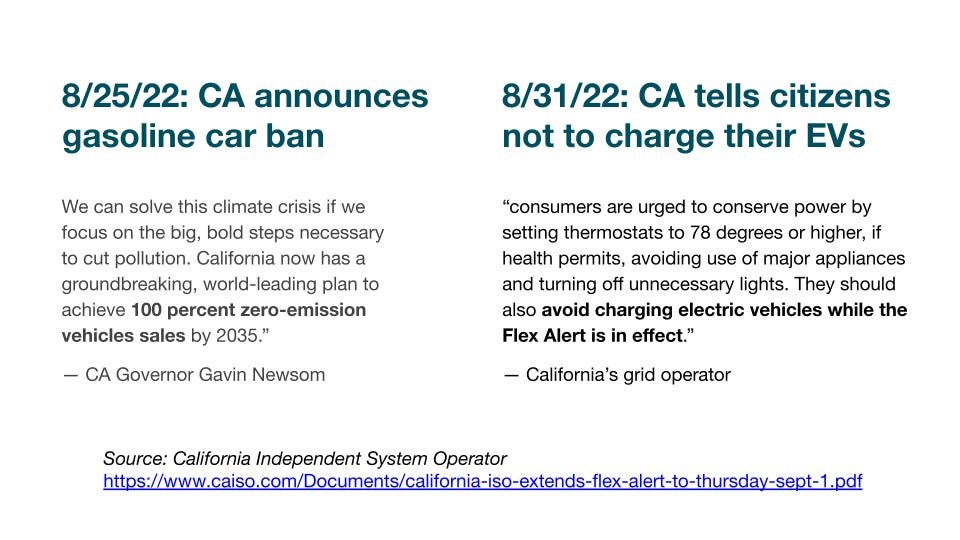
A new energy freedom policy
Establish a truly free auto market by abolishing EV subsidies and other fuel subsidies.
-
End EV subsidies: Remove all EV tax credits
-
Prevent the EV mandate: Direct the EPA to cancel their proposed greenhouse gas standards that would de-facto ban most ICEs
Common misconception about EV preferences
Myth: Without government EV preferences, we lose out on potential EV benefits such as low maintenance costs, lower overall costs, and lower urban air pollution.
Truth: EV freedom allows us to take advantage of any real EV benefits as and when they arise at scale.
Positive consequences
If EVs compete on a truly free market, Americans will be free to drive whatever car they judge best for their needs. EV makers and supporters will be incentivized to actually deliver a superior product, including a grid with adequate electricity.
Steffen Henne and Michelle Hung contributed to this piece.
References
-
Alex Epstein - Biden's 67% EV policy: a dictatorial attack on the American driver and the US grid↩
-
American Petroleum Institute - API: EPA Proposal a De Facto Ban on Gasoline Powered Cars and Trucks
Internal Revenue Service - Credits for new clean vehicles purchased in 2023 or after↩
-
UC San Diego - The Keeling Curve
For every million people on earth, annual deaths from climate-related causes (extreme temperature, drought, flood, storms, wildfires) declined 98%--from an average of 247 per year during the 1920s to 2.5 per year during the 2010s.
Data on disaster deaths come from EM-DAT, CRED / UCLouvain, Brussels, Belgium – www.emdat.be (D. Guha-Sapir).
Population estimates for the 1920s from the Maddison Database 2010, the Groningen Growth and Development Centre, Faculty of Economics and Business at University of Groningen. For years not shown, population is assumed to have grown at a steady rate.
Population estimates for the 2010s come from World Bank Data. Our World in Data - Annual CO₂ emissions by world region↩
-
Cox Automotive - A Record 1.2 Million EVs Were Sold in the U.S. in 2023, According to Estimates from Kelley Blue Book↩
-
Alex Epstein - Gavin Newsom’s 10 favorite myths about energy and climate, refuted
California ISO - California ISO extends Flex Alert to Thursday, Sept. 1↩
